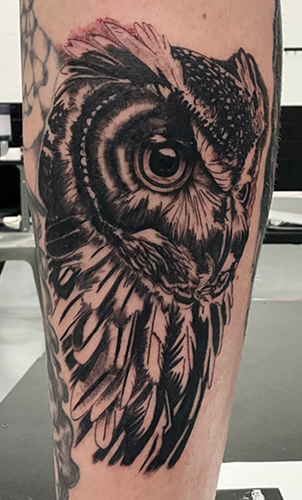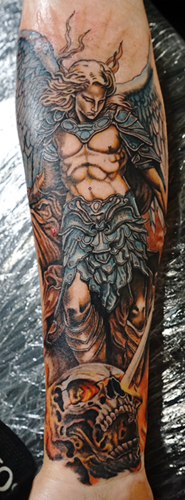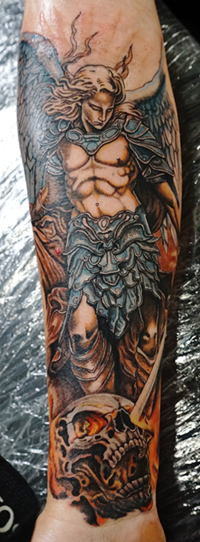SMYRNA, DE - The Delaware Department of Correction has announced a new tattoo artist training program aimed at giving inmates a better chance of success upon their return to the community.
The Department of Correction’s (DOC) new Tattoo Artist Career Pathway Program allows inmates to study and train to become professional tattoo artists, while also reducing the risk of infection that can be spread through unsanitary and unsanctioned tattooing among the incarcerated population.
“We recognize that tattooing is a part of prison culture, and we are concerned about the health risks that come from unsanitary tattooing inside the walls,” said Department of Correction Commissioner Terra Taylor. “The Tattoo Artist Career Pathway Program demonstrates our creative thinking to bring prison tattooing out of the shadows, create educational opportunities to build a practical career, and prevent the spread of bloodborne diseases like Hepatitis. This pilot vocational training program meets the built-in demand for prison tattoos in a safe, hygienic, and supervised environment, creates new opportunities for incarcerated individuals to perform meaningful work, and supports our safety mission by creating incentives to keep inmate tattoo artists and customers out of trouble.”

Six inmates are currently studying to become professional tattoo artists, according to the DOC. Candidates for the program must demonstrate artistic ability, have taken responsibility for their crimes, and shown consistently good behavior, DOC officials say. Customers must earn minimum and medium security classification and have no significant disciplinary infractions within a year and pay through their own personal funds.
All tattoo designs are reviewed by security to filter out depictions of violence and gang affiliation.
Training begins after 6 months of comprehensive classroom learning that focuses on health, safety, design, technique, and proper tool usage. The students can then begin inking tattoos for inmate customers in the James T. Vaughn Correctional Center’s tattoo studio. The program is led by licensed tattoo artist Larry Normile of Artistic Additions tattoo studio in Dover.
“I have almost thirty years of experience in the tattoo industry, and as a tattoo artist and small business owner I have learned the training and resources that are needed to make it a successful career,” Normile said. “I take my work seriously and am passionate about teaching, and I am excited about this opportunity to put my experience to work helping incarcerated men develop their skills, learn the value of work, and use their talents to achieve career and life success. I have been impressed by the artistic ability, positive attitude, and strong work ethic exhibited by our first group of tattoo artist students. I believe this program is already making a difference and is opening the door to second chances.”
Most of the students in the current first class are set for release within the next three years. Once the current six students complete their training, a new group of students will be selected.





